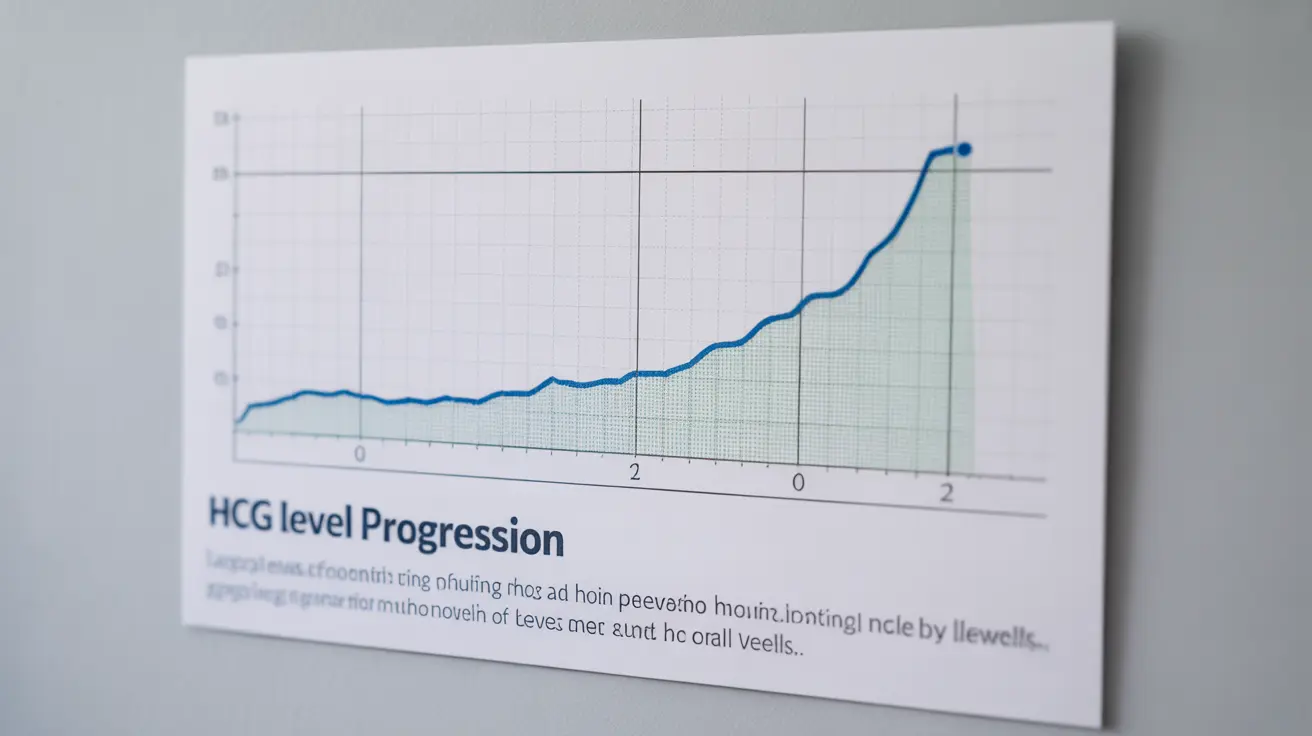Learning about low hCG levels at 4 weeks of pregnancy can be concerning for expectant mothers. Human Chorionic Gonadotropin (hCG) is a crucial hormone produced during pregnancy, and understanding its normal ranges and potential variations is essential for monitoring early pregnancy health.
This comprehensive guide will explore what low hCG levels might mean at the 4-week mark, potential causes, and when to seek medical attention. We'll also discuss testing procedures and what to expect during follow-up care.
Normal hCG Levels at 4 Weeks
At 4 weeks of pregnancy, hCG levels typically range from 10 to 750 mIU/mL. However, these numbers can vary significantly between individuals, and what's considered "normal" exists on a broad spectrum. The most important factor is not necessarily the absolute number but how the levels change over time.
During early pregnancy, hCG levels should typically double every 48-72 hours. This pattern is more indicative of a healthy pregnancy than any single measurement.
Understanding Low hCG Levels
Potential Causes
Several factors can contribute to low hCG levels at 4 weeks:
- Miscalculated gestational age
- Recently implanted pregnancy
- Natural variations between pregnancies
- Possible early pregnancy complications
- Underlying medical conditions
When to Be Concerned
While low hCG levels can be concerning, they don't always indicate a problem. However, certain situations warrant medical attention:
- Severe abdominal pain
- Vaginal bleeding
- Dizziness or fainting
- Sharp pain in the shoulders
- Previous history of ectopic pregnancy
Monitoring and Testing
Follow-up Protocol
If your initial hCG levels are low, your healthcare provider may recommend:
- Serial beta hCG tests every 48-72 hours
- Early transvaginal ultrasound
- Additional hormone level monitoring
- Regular clinical assessments
Role of Ultrasound
While hCG levels are important, ultrasound plays a crucial role in early pregnancy assessment. At 4 weeks, a transvaginal ultrasound might not show much, but it becomes more informative by 5-6 weeks, helping to confirm pregnancy location and viability.
Supporting Your Early Pregnancy
While monitoring low hCG levels, it's important to:
- Keep all scheduled prenatal appointments
- Take prescribed prenatal vitamins
- Stay well-hydrated
- Avoid alcohol and smoking
- Report any concerning symptoms promptly
Frequently Asked Questions
What are the normal hCG levels at 4 weeks of pregnancy, and what does it mean if they are low? Normal hCG levels at 4 weeks typically range from 10 to 750 mIU/mL. Low levels might indicate early pregnancy, miscalculated dates, or potential complications, but should be monitored through repeated testing.
Can low hCG levels at 4 weeks indicate an increased risk of miscarriage, and what symptoms should I look out for? While low hCG can be associated with increased miscarriage risk, it's not definitive. Watch for severe cramping, heavy bleeding, passing tissue, and severe pain. Contact your healthcare provider if you experience these symptoms.
How do I determine if my low hCG levels are due to an ectopic pregnancy, and what symptoms should prompt medical attention? Ectopic pregnancy symptoms include sharp abdominal pain, shoulder pain, vaginal bleeding, and dizziness. Seek immediate medical care if you experience these symptoms, as ectopic pregnancies require urgent treatment.
What are the potential causes of low hCG levels at 4 weeks, and how is the gestational age typically calculated? Low hCG can result from recent implantation, miscalculated dates, or potential pregnancy complications. Gestational age is calculated from the first day of your last menstrual period, though early ultrasound can provide more accurate dating.
How often should I get follow-up hCG tests if my levels are low at 4 weeks, and what role does ultrasound play in assessing pregnancy health? Follow-up hCG tests are typically scheduled every 48-72 hours to monitor doubling time. Ultrasound becomes valuable around 5-6 weeks to confirm pregnancy location and development, complementing hCG monitoring.




